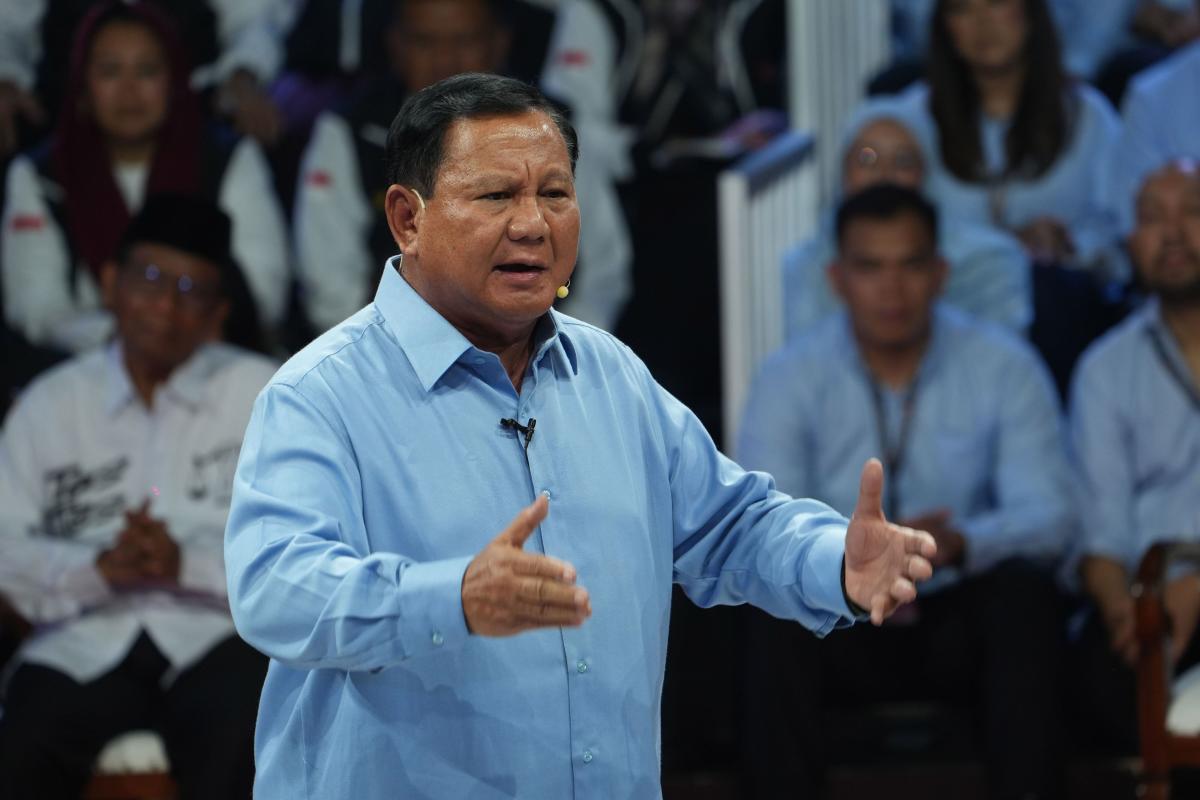Bloomberg) — Economists gave top marks to a dark horse candidate in Indonesia’s presidential race, favoring former Jakarta governor Anies Baswedan to oversee Southeast Asia’s largest economy, according to a Bloomberg survey.
Baswedan, a prominent critic of President Joko Widodo got the highest score of 33 from the 17 economists and market analysts when asked who they think is the best person to lead Indonesia. Defense Minister Prabowo Subianto took second spot with 29, while former Central Java Governor Ganjar Pranowo got 28.
Indonesia is less than a month away from its presidential election when over 204 million eligible voters will choose a leader to oversee the more than $1 trillion economy. It is likely to be a long election season: if none of the three candidates secure at least half of the vote, there will be a run-off in June.
The economy is expected to grow faster than 5%, according to the survey. The president, popularly known as Jokowi, has failed to reach his 7% goal as he wraps up his second and final five-year term.
The Bloomberg survey, carried out in early January, comes as Baswedan is gaining ground in Indonesia’s major opinion polls, which has ex-general Prabowo in the lead.
Prabowo brought in Jokowi’s son as his running mate for his third run at the top job, triggering accusations of dynasty building. The duo are pledging to continue Jokowi’s policies including minerals downstreaming and the construction of a new $34 billion capital city.
Prabowo is banking on an appetite for Indonesia to stay the course that helped the country’s assets outperform emerging-market peers. Rupiah bonds have returned an annualized 5.5% for dollar-based investors since Jokowi was elected president in July 2014, far higher than debt in neighboring Philippines and Malaysia, and the 0.5% annual return for a broad gauge of emerging market local currency sovereign debt, according to data compiled by Bloomberg.
In Jokowi’s first term, Baswedan became education minister but was dropped in a cabinet reshuffle two years later. He then set his sights on, and won, the Jakarta gubernatorial race in 2017, using a divisive campaign that tapped a Muslim backlash against a Chinese-Christian incumbent who was also a Jokowi ally.
As part of his campaign, Baswedan has pledged to tax the rich and create millions of green economy jobs. He has also been one of Jokowi’s more prominent critics on the president’s plans to build a $34 billion new capital on Borneo island, saying policies shouldn’t be based on personal aspirations. He also criticized Jokowi’s administration for not acting swiftly to contain Covid-19 and called to question the data on cases at the height of the pandemic.
Dynastic Politics
Indonesians are increasingly uneasy with dynastic politics — a regular feature in the country since independence. Prabowo represents that thread of history not just through his running mate, but as a former son-in-law of the late dictator Suharto.
Ten out of 17 in the Bloomberg survey said a political dynasty under Jokowi will not bode well for markets and the economy.
While Jokowi came to power a decade ago as an outsider on a campaign promoting him as the man of the people, his sons are now actively involved in politics and a son-in-law is mayor of Medan — one of Indonesia’s largest cities.
Allegations of nepotism flared up last year after a constitutional court — presided by the chief justice who’s a brother—in-law of Jokowi — lowered the eligible age for president and vice-presidents. It paved the way for Jokowi’s son, 36-year-old Gibran Rakabuming Raka, to contest as a vice presidential candidate.
Jokowi has denied trying to create a political dynasty, saying Indonesian voters will decide who wins.
There is no guarantee Jokowi’s policies will continue under a Prabowo presidency, according to Ian Wilson, a senior lecturer and senior research fellow at Murdoch University’s Indo-Pacific Research Centre. He didn’t take part in the survey.
“Once Jokowi is out of office, his political influence will wane significantly,” Wilson said. “He doesn’t have significant financial resources to exert influence, nor a powerful political vehicle.”
Here are the other findings from the survey:
Mining and metals are the most attractive sector for investors to focus on during the election year, followed by infrastructure and renewable energy.
Analysts say Indonesia’s downstream policy should be continued by Jokowi’s successor, followed by infrastructure reforms and a green energy transition.
Most respondents said a heavy reliance on coal is one policy that shouldn’t be continued.
–With assistance from Grace Sihombing, Claire Jiao and Matthew Burgess.
Most Read from Bloomberg Businessweek
©2024 Bloomberg L.P.
